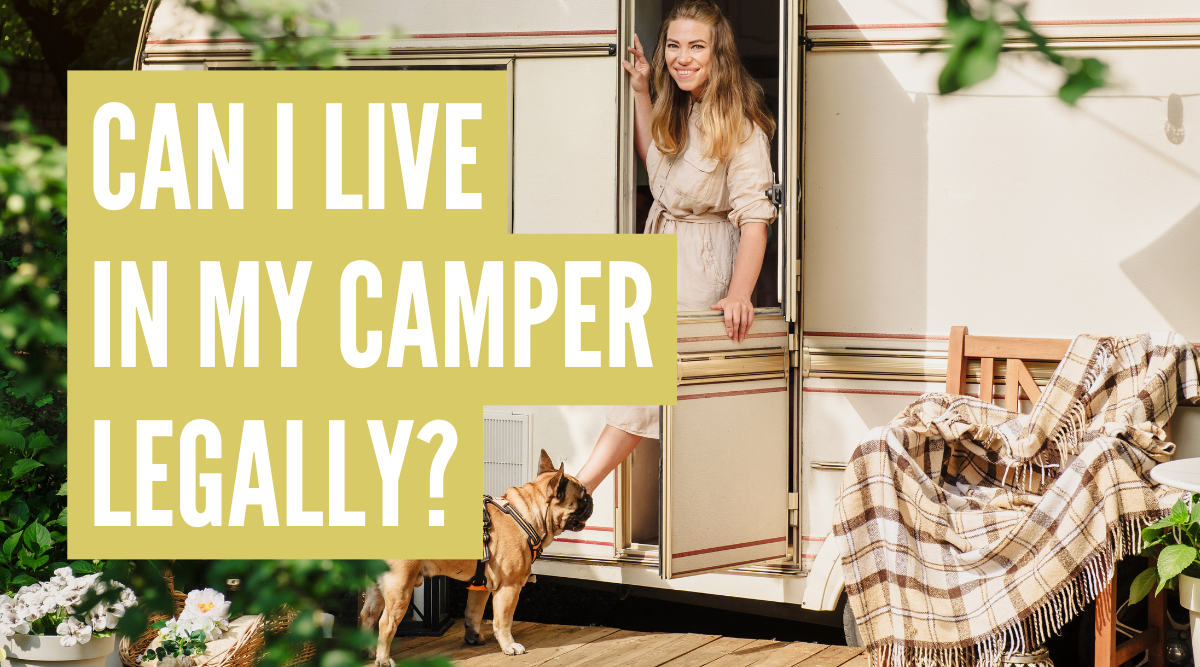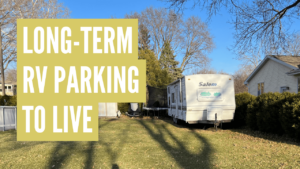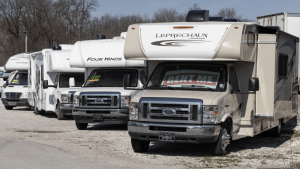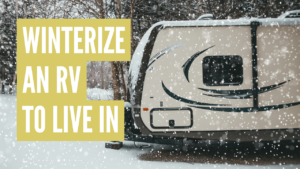The American dream was once defined by owning your own house.
However, that dream has evolved over the years, with many people choosing to downsize and live in an RV!
If you or your loved ones are planning on living permanently in a camper at a residence, there are a few things that you should know.
Is Living In A Camper In Your Backyard Legal?
Yes and no…
Although it’s legal to park your RV or camper on land that you own, like your backyard, in some cities, you will be breaking the law if you decide to live in it full-time.
You can’t live in a camper year-round unless it’s allowed by local zoning laws. If the land you own isn’t approved for RV residence, then you may be forced to move it to somewhere that is if you want to live in it.
If you live in a rural area, typically speaking, law enforcement is not that strict, and people are more tolerant. If you respect your neighbors, and keep things quiet and clean, they’ll most likely be OK with your camper living experience. You might even invite them to chill with you and your family.
So, why is it illegal to live in a camper in your backyard?
Mainly, the government doesn’t view your RV as a permanent dwelling. Even though your recreational vehicle may resemble a mobile home more than a car, it’s still classified as a vehicle.
Even if you have plumbing, electrical, and water hooked up, the Department of Housing and Urban Development will still treat your recreational vehicle as such – a vehicle only used for recreational purposes.
On the bright side, there is no federal law prohibiting you from living in a camper in your backyard. It will most likely be a local or HOA regulation, so you should check the law in your area first before setting up permanent residence.
How to Live in a Camper on Your Own Land
If your heart is set on RV living, there are a few things you can do to make the dream a reality. Most people give up on their mobile home dreams because they haven’t done enough research before moving into a camper. Here are a few things you can do to live in your camper.
Check State And Local Laws
Knowledge is power. Before deciding to move into a camper, it’s crucial that you check the state and county laws to see if it’s allowed. If they permit you to live in a camper on your current property then you’re good to go!
However, this often isn’t the case, and you may need to move to a special place where you can park your RV and call it home.
Choose The Right Spot
If living in an RV on your current property isn’t an option, there are basically four options available if you choose to live in a camper.
- Neighborhoods with RV allowances so the residents are ok with having campers
- Rural land specified for homesteading
- RV Co-op parks
- Mobile home parks
1. Neighborhoods with RV Allowances
In these areas, all the utilities are already installed so RV dwellers can use them whenever they want to. Some of these neighborhoods are pretty fancy so you can have access to a pool, a gym, a fitness center, and a clubhouse. Moreover, you’re likely to meet experienced neighbors who have been roaming several states for years. Listening to them and learning from their experiences is a big plus.
Land lots are usually spacious and provide you with more privacy, but they’re quite expensive and might cost as much as $50,000 plus HOA fees.
2. Rural land specified for Homesteading
If you’re interested in the nomad lifestyle, then this is what you should think about. You can find lots where there are no neighbors visible within miles. Privacy is a big plus, but you should think about the safety of you and your property in such a rural setting.
3. RV Co-op Parks
RV parks are probably the easiest option out there, as you can simply purchase a land plot for your RV or camper. The good news is that there are always activities by other members of the community where you can get to know others who share the same lifestyle. There might be other facilities available, like a pool or a fitness center for the community members.
However, one potential downside t living in an RV park is that there might not be enough privacy. Campers are closely located to each other, so you might suffer if you’re looking for peace and quiet.
4. Mobile Home Parks
Check with local mobile home parks. In some cases, you’re allowed to buy a plot of land where you can park your RV all year long. In other cases, you may be required to move the camper occasionally to be able to stay.
The good thing about these parks is that most of the utilities are already available since the park was designed for mobile homes. So it’s a good choice for someone who’s going through the experience for the very first time.
Tip: See Where Can I Park My RV to Live Long-Term? for more information and tips to find the perfect spot to park your RV.
Additional Considerations
When considering the right spot for your camper, you’ll want to keep your utilities in mind.
Unless you’re living off-grid (no main electrical supply), you’ll want to make sure that electricity can be run across your land so you can power your RV. And while you could technically run an RV generator for power, that could get pretty costly and isn’t ideal for an extended period of time.
Water and sewer are also amenities that you’ll want to consider. Water can come from the city supply or from a well. Depending on your location, only one of those options may be available.
And if it’s important to you, check that you have proper cell phone and internet coverage. Some people choose to live in a camper because they want to break free from technology. Nevertheless, technology is life-saving, and if you can’t reach anyone in case of an emergency, your life may be in danger.







Write a comment